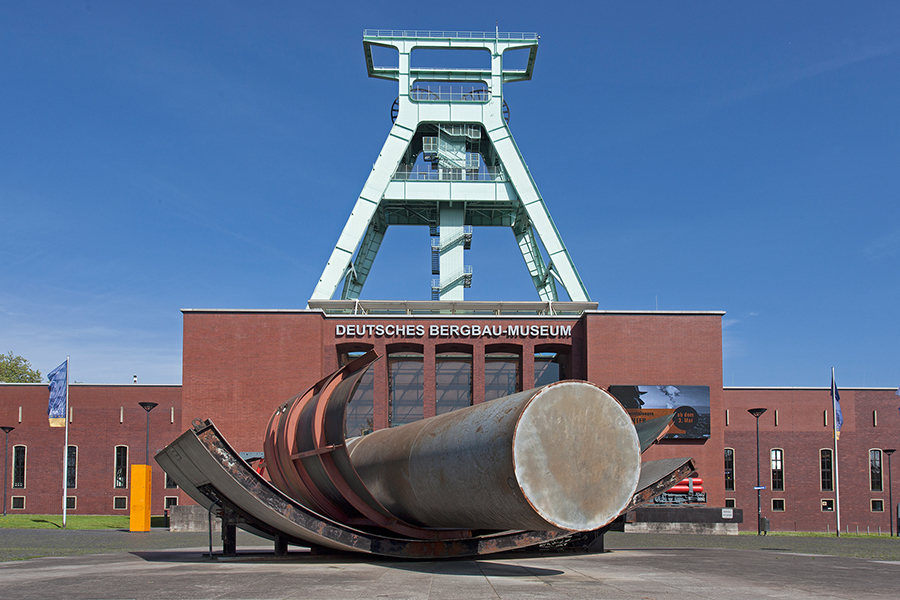Founded in 1930, the Deutsches Bergbau-Museum Bochum is one of eight research museums belonging to the Leibniz Association. It researches, preserves, teaches and exhibits the history of mining, processing and usage of geo-resources across all time periods. After a phase of transformation, the museum re-opened in 2019 with a redesigned permanent exhibition. It now offers four tours with more than 3 000 objects addressing the natural history of minerals, the uses of geo-resources from prehistory to the present, hard coal as a key sector of the industrial world, and the reflection of mining in arts and culture. As a research institute, the museum’s exhibitions are closely interlinked with its research activities which include the technical, cultural and economic history of mining, mining archaeology, archaeometallurgy, materials science, alongside the Research Laboratory and the Montanhistorisches Dokumentationszentrum (the Mining History Document Centre, or montan.dok). montan.dok is the central service facility for the preservation, development and accessibility of all collections retained by the museum. It functions as the key archive of the German coal mining industry and is active in the research of industrial heritage and oral history.
Website: www.bergbaumuseum.de/en/




 COHDS Annual General Assembly 2019. Photo: Vitalyi Bulychev
COHDS Annual General Assembly 2019. Photo: Vitalyi Bulychev The Ingenium Centre. Photo: Pierre Martin | Ingenium
The Ingenium Centre. Photo: Pierre Martin | Ingenium